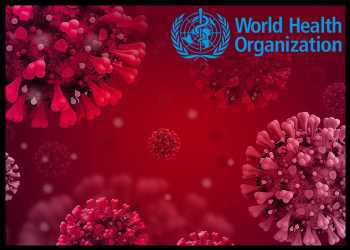The World Health Organization (WHO) says that Covid-19 pandemic continues to be a public health emergency of international concern.
A statement issued on Monday after the fourteenth meeting of the WHO International Health Regulations Emergency Committee regarding the pandemic said, “The WHO Director-General concurs with the advice offered by the Committee regarding the ongoing COVID-19 pandemic and determines that the event continues to constitute a public health emergency of international concern (PHEIC). The Director-General acknowledges the Committee’s views that the COVID-19 pandemic is probably at a transition point and appreciates the advice of the Committee to navigate this transition carefully and mitigate the potential negative consequences.”
The meeting was held on the three-year anniversary of the UN health agency declaring Covid-19 a pandemic.
Chairing the meeting, WHO Director-General Dr Tedros Adhanom Ghebreyesus noted that while the world is in a better position than it was during the peak of the Omicron transmission one year ago, more than 170000 Covid-19-related deaths were reported globally within the last eight weeks. In addition, surveillance and genetic sequencing have declined globally, making it more difficult to track known variants and detect new ones. Health systems are currently struggling with Covid-19 and caring for patients with influenza and respiratory syncytial virus (RSV), health workforce shortages, and fatigued health workers.
At the same time, he noted that vaccines, therapeutics, and diagnostics remain critical in preventing severe disease, saving lives and taking the pressure off health systems and health workers globally. Yet, the pandemic response remains hobbled in too many countries unable to provide these tools to the populations most in need, older people and health workers, Ghebreyesus added.
The WHO chief recommended that all member States should plan for integration of Covid-19 vaccination into part of life-course immunization programs.
The WHO Secretariat expressed concern about the continued virus evolution in the context of unchecked circulation of the disease and the substantial decrease in Member States’ reporting of data related to Covid-19 morbidity, mortality, hospitalization and sequencing, and reiterated the importance of timely data sharing to guide the ongoing pandemic response.
WHO urged countries to remain vigilant and continue reporting surveillance and genomic sequencing data.
The Committee was informed that globally, 13.1 billion doses of Covid-19 vaccines have been administered, with 89 percent of health workers and 81 percent of older adults having completed the primary series. Significant progress has also been made in developing effective medical countermeasures and building global capacity for genomic sequencing and genomic epidemiology.
Committee Members expressed concern about the ongoing risk posed by Covid-19, with a still high number of deaths compared to other respiratory infectious diseases, the insufficient vaccine uptake in low- and middle-income countries, as well as in the highest-risk groups globally, and the uncertainty associated with emerging variants.
They recognized that pandemic fatigue and reduced public perception of risk have led to drastically reduced use of public health and social measures, such as masks and social distancing. Vaccine hesitancy and the continuing spread of misinformation continue to be extra hurdles to the implementation of crucial public health interventions.
The committe observed that the long-term risk of post-infection cardiovascular and metabolic disease will likely have serious negative impact on population.
The Committee acknowledged that the pandemic may be approaching an inflexion point. Achieving higher levels of population immunity globally, either through infection and/or vaccination, may limit the impact of Covid on morbidity and mortality, but there is little doubt that this virus will remain a permanently established pathogen in humans and animals for the foreseeable future.
Meanwhile, Chinese health officials said that the current wave of Covid-19 infections in China is coming to an end.
Source: Read Full Article
